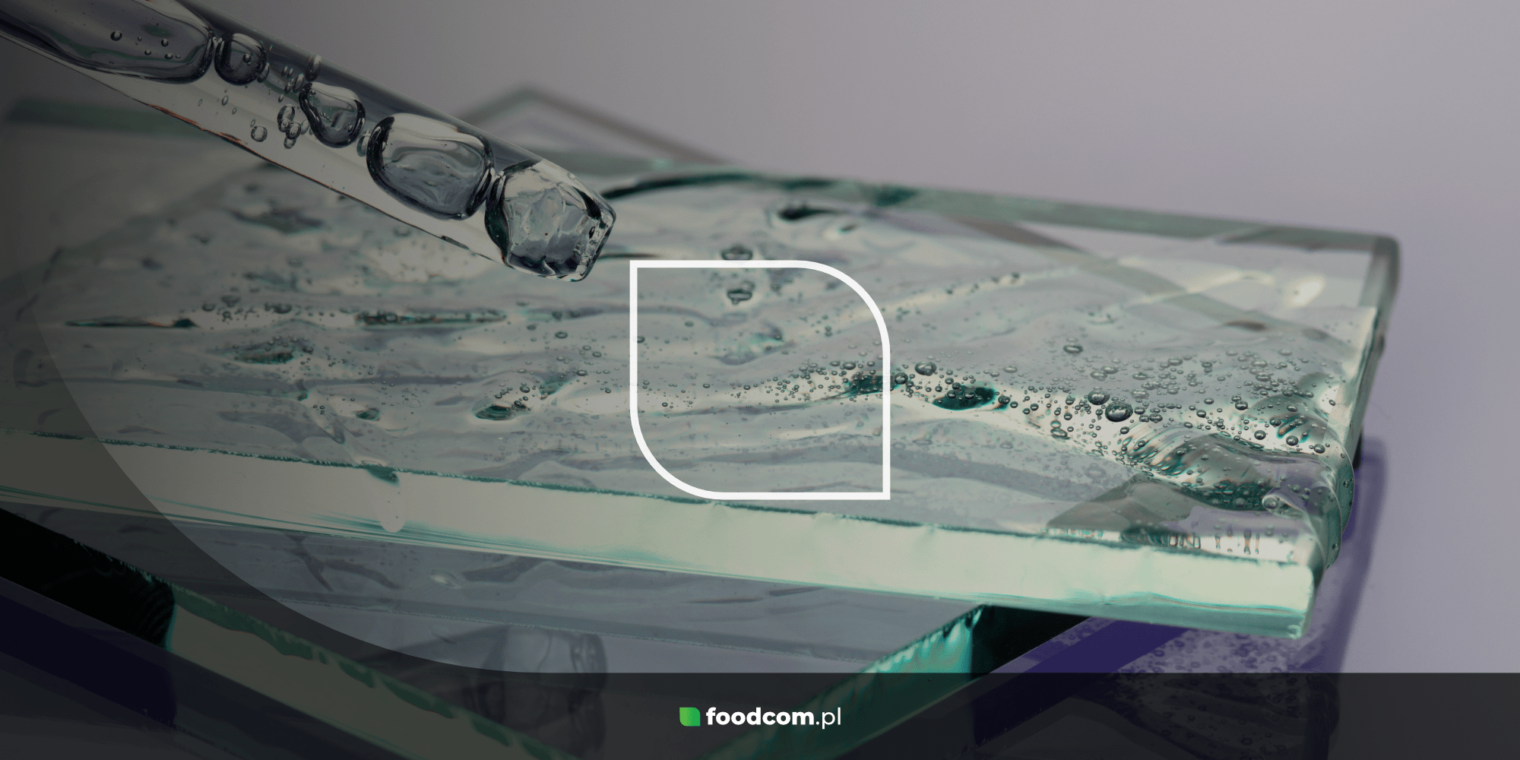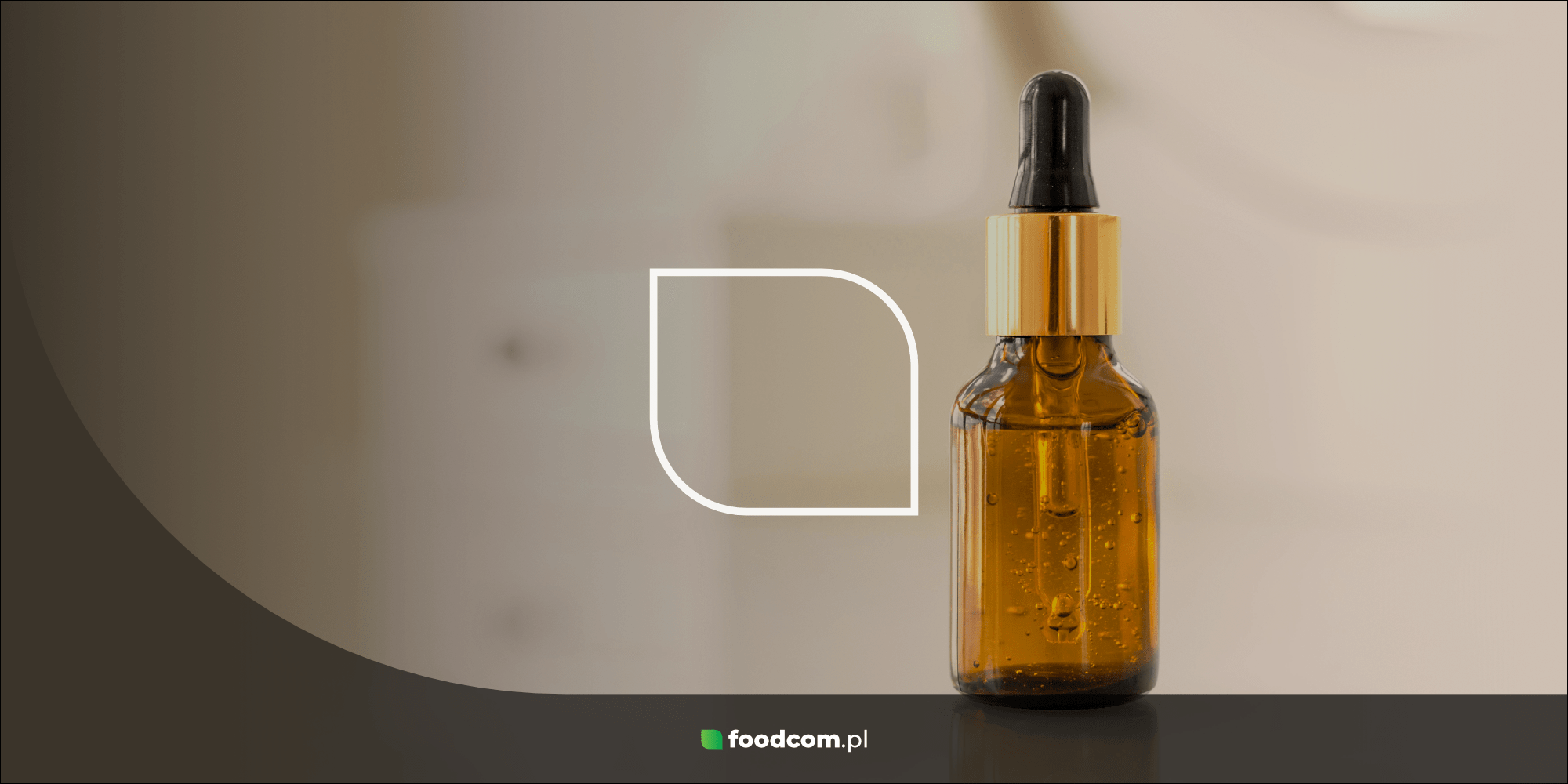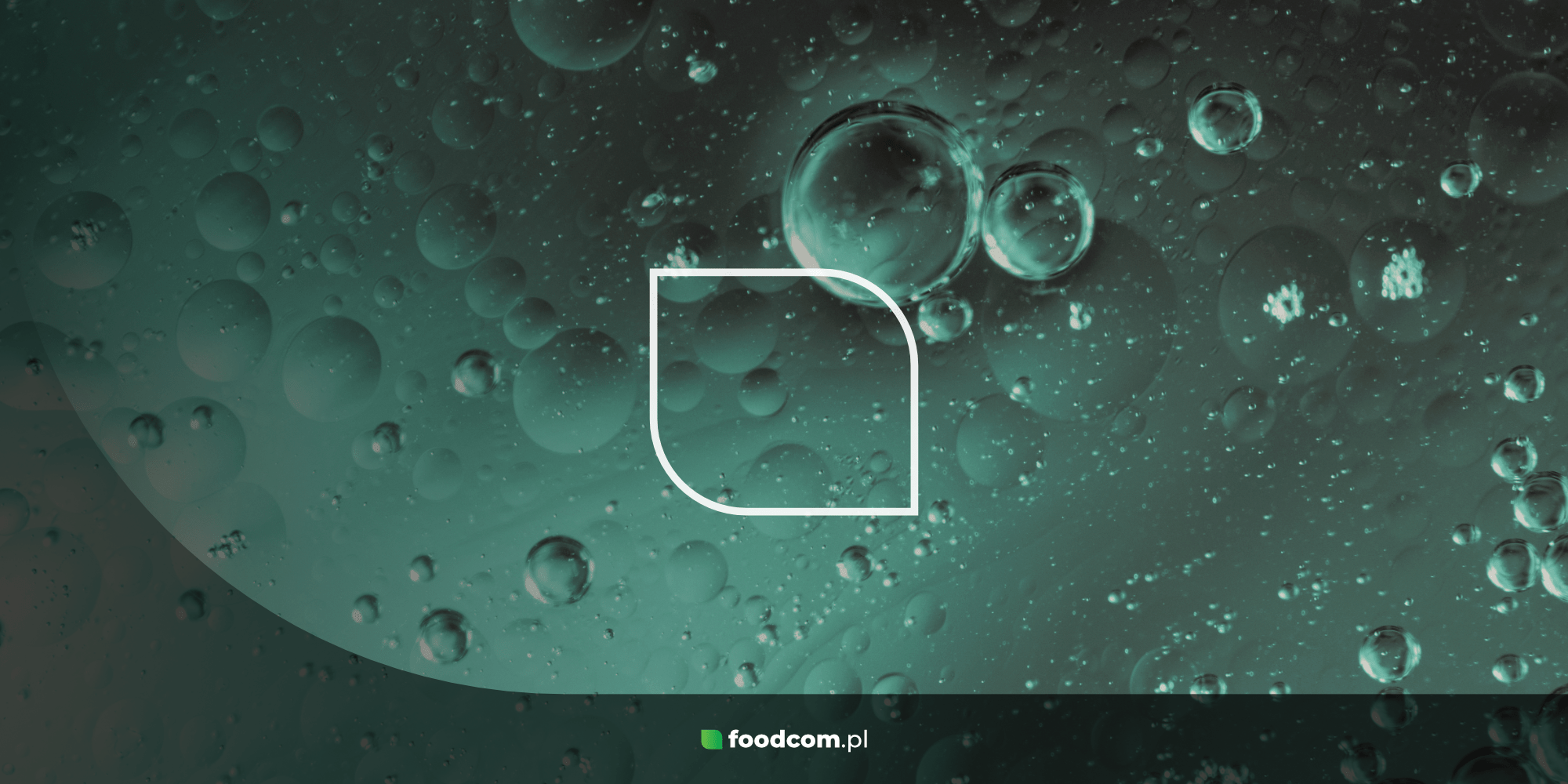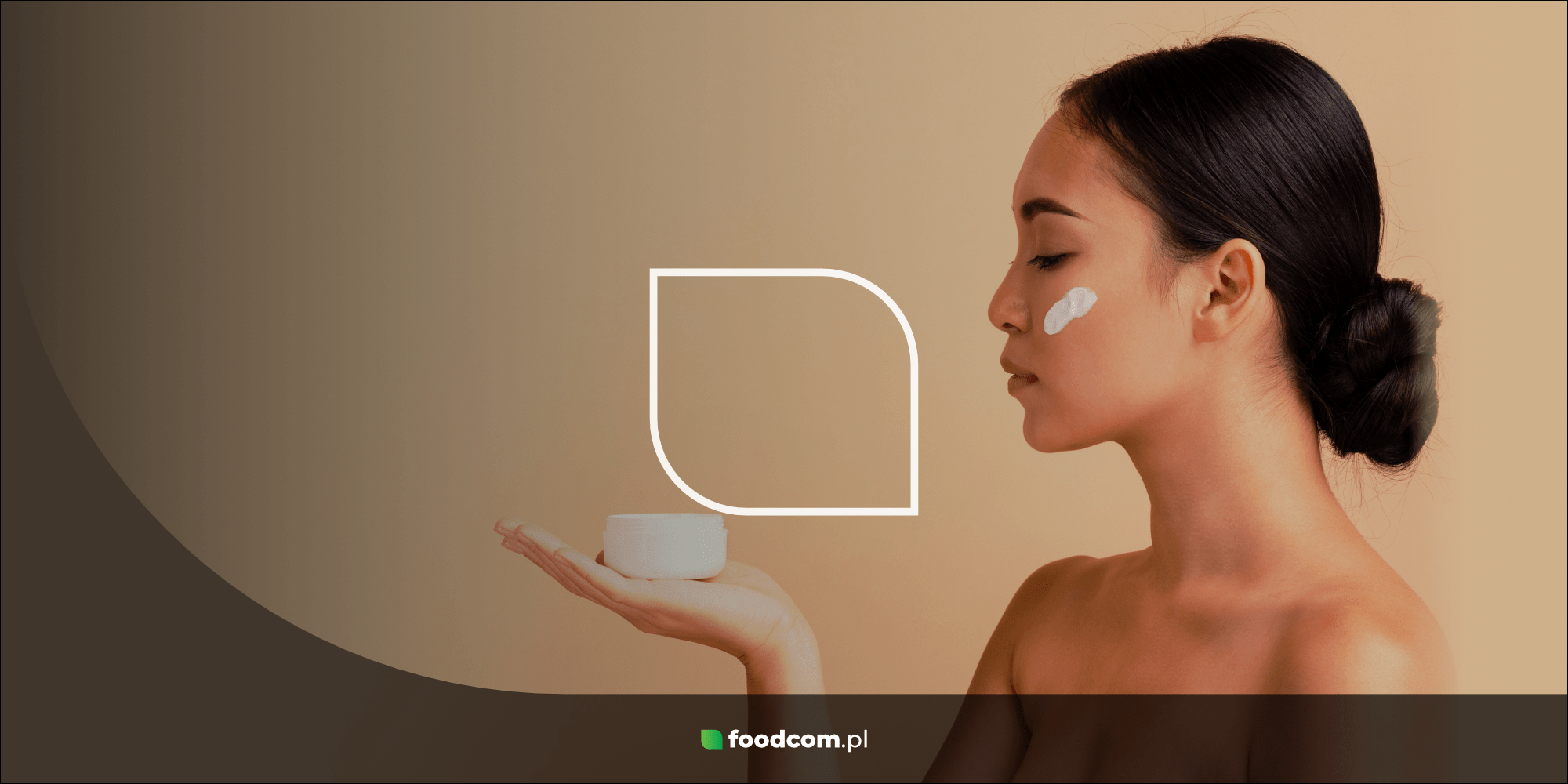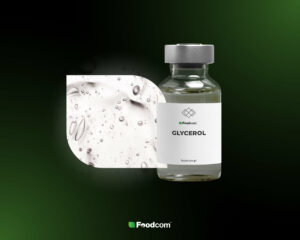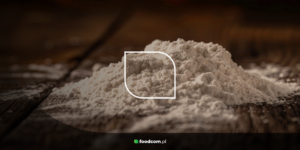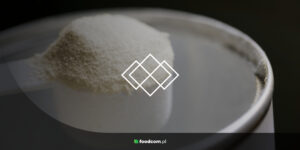- Glycerin (E422) is an organic polyhydroxy alcohol used in the cosmetic, pharmaceutical, food and technology industries.
- It has hygroscopic properties, making it ideal for moisturizing skin, preventing drying and preserving products.
- It can be extracted naturally or synthetically, and its applications include the production of cosmetics, food, drugs, explosives and chemicals.
Glycerine (E422) is an organic chemical compound that belongs to the group of sugars. It is a polyhydroxy alcohol – the simplest stable trihydroxy alcohol (triol). Glycerine is also called glycerol or, less commonly, propane-1,2,3-triol. All these names are correct and are used interchangeably.
Glycerine is a substance most often obtained from plant and animal sources by saponification of fats. It can also be extracted synthetically through the oxidation reaction of propylene or as a by-product of biofuel production. Naturally, glycerol is contained not only in plant and animal fats, but also in some fruits and vegetables. It also plays a key role in the physiology of animals living in cold climates, as it increases their tolerance to freezing.
Glycerine is widely used in the production of cosmetics, as well as in many other industries, medicine and households.
Chemical properties of glycerine
Glycerine, also known as glycerol, is an organic chemical compound from the trihydric alcohols group. Its chemical formula is C₃H₈O₃, which means that the glycerol molecule consists of three carbon atoms, eight hydrogen atoms and three hydroxyl groups (-OH). These hydroxyl groups give glycerine its polar character, making it an excellent solvent for many substances such as alcohols and organic salts.
The chemical properties of glycerine make it a very stable compound. It is resistant to most acids and bases at room temperature, making it safe for use in a wide variety of industries. It also has hygroscopic properties, meaning that it can attract and bind water from its surroundings. This has led to its use in cosmetics, pharmaceuticals and the food industry. When reacting with fatty acids, glycerine forms esters, such as triglycerides, which are the basic constituents of fats and oils.
Another important chemical reaction in which glycerol is involved is esterification. Through this reaction, glycerol can be converted into nitroglycerin, which is a key ingredient in explosives, but also a substance used in pharmacology as a vasodilator. This makes it an important chemical raw material with a wide range of applications.
Physical properties of glycerine
Glycerol has characteristic physical properties that make it a versatile substance. Under normal conditions, glycerine is a thick, colourless and transparent liquid with a syrupy consistency. Its melting point is around 17.8°C, which means that it can freeze at low temperatures to form a crystalline form. Its boiling point is 290°C, making it resistant to evaporation and enabling it to be used in applications requiring thermal stability.
It is highly viscous, which is one of its most important physical characteristics affecting its use. Due to its high viscosity, glycerine is used as a moisturiser in cosmetic products such as creams, lotions and shampoos, ensuring that skin and hair are properly moisturised. Its high viscosity also makes glycerine an excellent emollient in food products, giving them the desired texture.
Its density is approximately 1.26 g/cm³, which means that it is heavier than water. It is also soluble in water in any proportion, thanks to its polarity and the presence of three hydroxyl groups that form hydrogen bonds with water molecules. As a result, glycerine is often used as a binder, emulsifier or solvent in many products. It is also odourless and has a sweet taste, making it a valuable addition to foods and medicines in which it acts as a sweetener.
Its transparency and its ability to mix with water and other solvents enables its use in the production of cosmetics and pharmaceuticals, which require high quality and aesthetics. Glycerine is also thermally stable and non-degradable under normal conditions of use, making it an indispensable ingredient in numerous industrial applications.
Glycerine production
Glycerine can be obtained naturally or synthetically. It is formed by the hydrolysis of fats, resulting in a mixture of fatty acids and glycerine. It is then separated from the fatty acids by distillation or other refining processes. Its vegetable sources are usually soya beans, palm fat or coconut oil.
Synthetically, glycerol can be obtained from propene by chlorination, which produces allyl chloride. This compound is then oxidised to dichlorohydrin, which reacts with a strong base to form epichlorohydrin. The product of its hydrolysis is glycerol. It can also be obtained as a by-product in biofuel production.
Glycerol applications
Glycerol is widely used in industry, mainly due to its strong hygroscopic properties. It is used primarily in the production of cosmetics, but also as a preservative – as it retains water, prevents cosmetics or food from drying out, and inhibits the growth of micro-organisms. Glycerol is also used in industry to increase the viscosity of products and as a solvent for other substances, as well as an intermediate.
Glycerine at home
E422 is a readily available product that has also found many uses in our households over the years. Glycerol is a substance that rarely causes allergies and only causes harmless side effects in large doses. It is therefore used not only as a household laxative, but also in the production of natural cosmetics. It is easy to create a moisturising scrub or skin tonic or even a glycerine soap using itglycerine soap.
Another homemade use of glycerine is to keep our home clean. Its addition when washing windows or mirrors will make these areas less likely to fog up. Glycerol also prevents dust from collecting and makes surfaces easier to polish. It gives a shine to glass objects and furniture, especially dark ones. It is also often used to refurbish rubber or plastic objects, allowing them to be visually refreshed.
Glycerine in cosmetics
The cosmetics industry is the area where glycerine is most commonly used on an industrial scale.
This compound is mainly an ingredient in cosmetics that have moisturising and lubricating properties. Its purpose is to moisturise and regenerate dry skin, so it is used in face creams, as well as in hand and foot creams, lipsticks and body lotions. It is also present in cosmetics for mature skin, as it smooths wrinkles and tightens the skin. In addition, it makes the skin more elastic, soothes irritation and inflammation, and soothes keratoses.
It is an ingredient in glycerine soap, which is used by people with delicate and sensitive skin. Thanks to its moisturising properties, this type of soap prevents the skin from drying out. It attracts moisture from the deeper layers of the skin, slowing or preventing excessive drying.
Glycerol is also used in hair care. Glycerine is recommended for hair that is weak, brittle and tends to frizz. It is often added to hair strengthening and smoothing conditioners, hair masks and serums for ends.
It can also improve the texture of cosmetics. Adding it to skin and hair care products skin and hair care products can make them less sticky and easier to spread. In addition, glycerine prevents the drying out of products and the crystallisation of fats, and facilitates the mixing of fats with water.
Glycerine in food production
Glycerol is also used in the food industry. In products, it is found as an ingredient designated as E422. It is used to adjust and maintain the right level of moisture in products, e.g. to prevent bread from drying out. Due to its ability to bind water, glycerol is also a preservative, as it leads to a reduction in the growth of harmful microorganisms. Due to its sweet taste, glycerol is also used as a sweetener and as a thickening agent, e.g. in the production of liqueurs.
Glycerine in medicine and pharmacology
In the pharmaceutical industry, glycerine is mainly used to produce laxatives. This is how the substance works when administered both orally and rectally. E422 can also be found in eye drops and ear hygiene preparations, as well as in preparations for the treatment of skin diseases, wounds and burns. The addition of glycerol to medicines improves their taste and smoothness. The compound is also one of the main components of nitroglycerin, a compound used as a vasodilator used in patients with coronary artery disease. In medicine, glycerol is also used to preserve sperm as it protects sperm from freezing. As a dietary supplement, glycerol is also used by athletes to reduce water loss during intense training.
Glycerine in industry
It is often used in industry as an intermediate or solvent for other substances. It is used, for example, in the liquids (liquids) used in e-cigarettes. Glycerine is heated by an atomiser, which creates an aerosol that delivers nicotine to the user. E422 also plays an important role in the production of antifreeze for textiles and waxes. It is also used in the production of resins, paints, waxes, brake and cooling fluids, cleaning agents and various fabrics, as well as in the tanning industry to dry leather. Glycerol is also found in explosives and as an intermediate in industrial chemical syntheses.
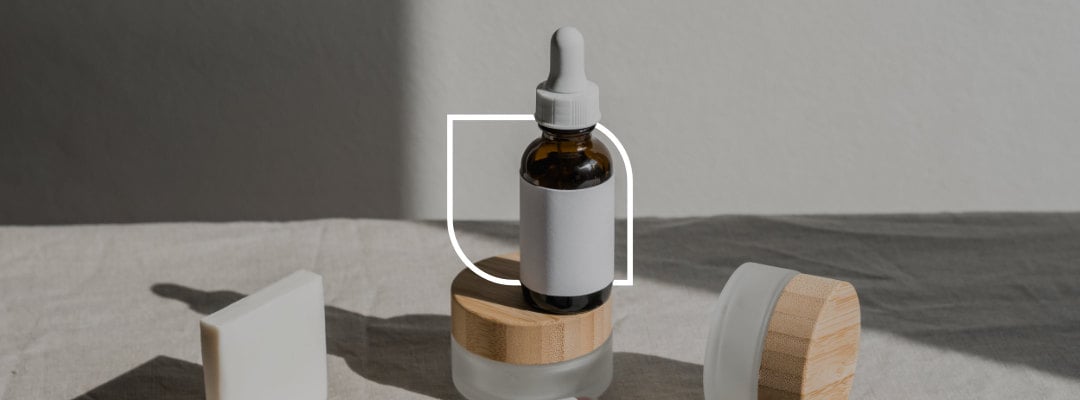
Glycerine market
The glycerine market is characterised by a high degree of flexibility due to the diversity of its sources and possible applications. Different types of glycerine are available to suit different needs – from natural glycerine derived from vegetable oils, through high-purity synthetic glycerine to technical glycerine obtained as a by-product of biodiesel production. The diversity of glycerine products translates into the possibility of their use in a variety of industries – from pharmaceuticals to food, cosmetics and technology. Its production adapted to specific quality standards is crucial, especially in areas such as the cosmetics and pharmaceutical industries, where particularly high purity standards are required. With the increasing demand for biofuels and natural components, glycerine is also becoming a valuable part of the supply chain, which only underlines its importance in today’s chemical market.
Our Sales Support team supports Trading Partners in the smooth and efficient execution of transactions, ensuring the highest standard of service. The logistics team takes care of transport and the finance department is responsible for all financial issues related to the transaction. Verified glycerine is available at Foodcom.

